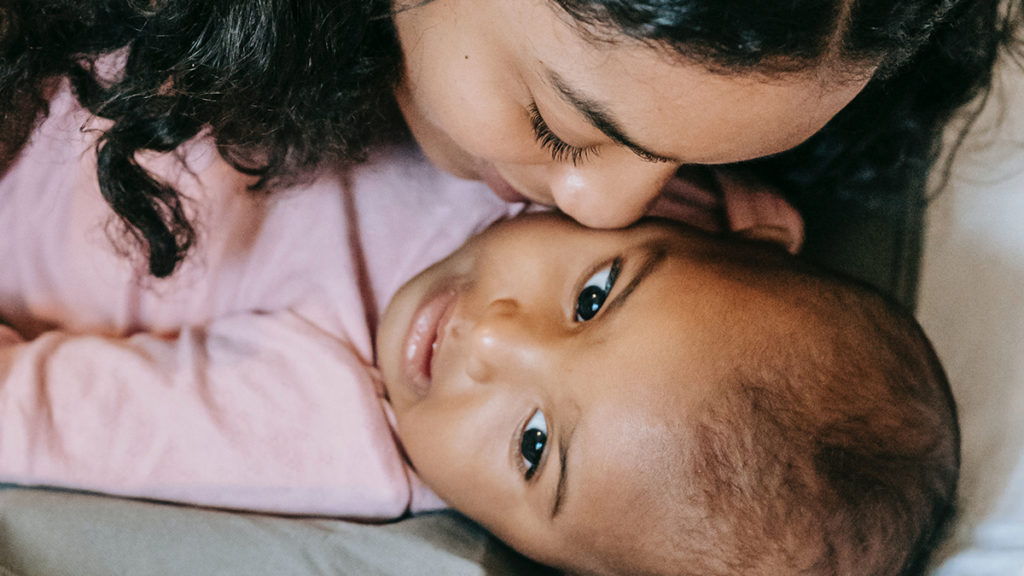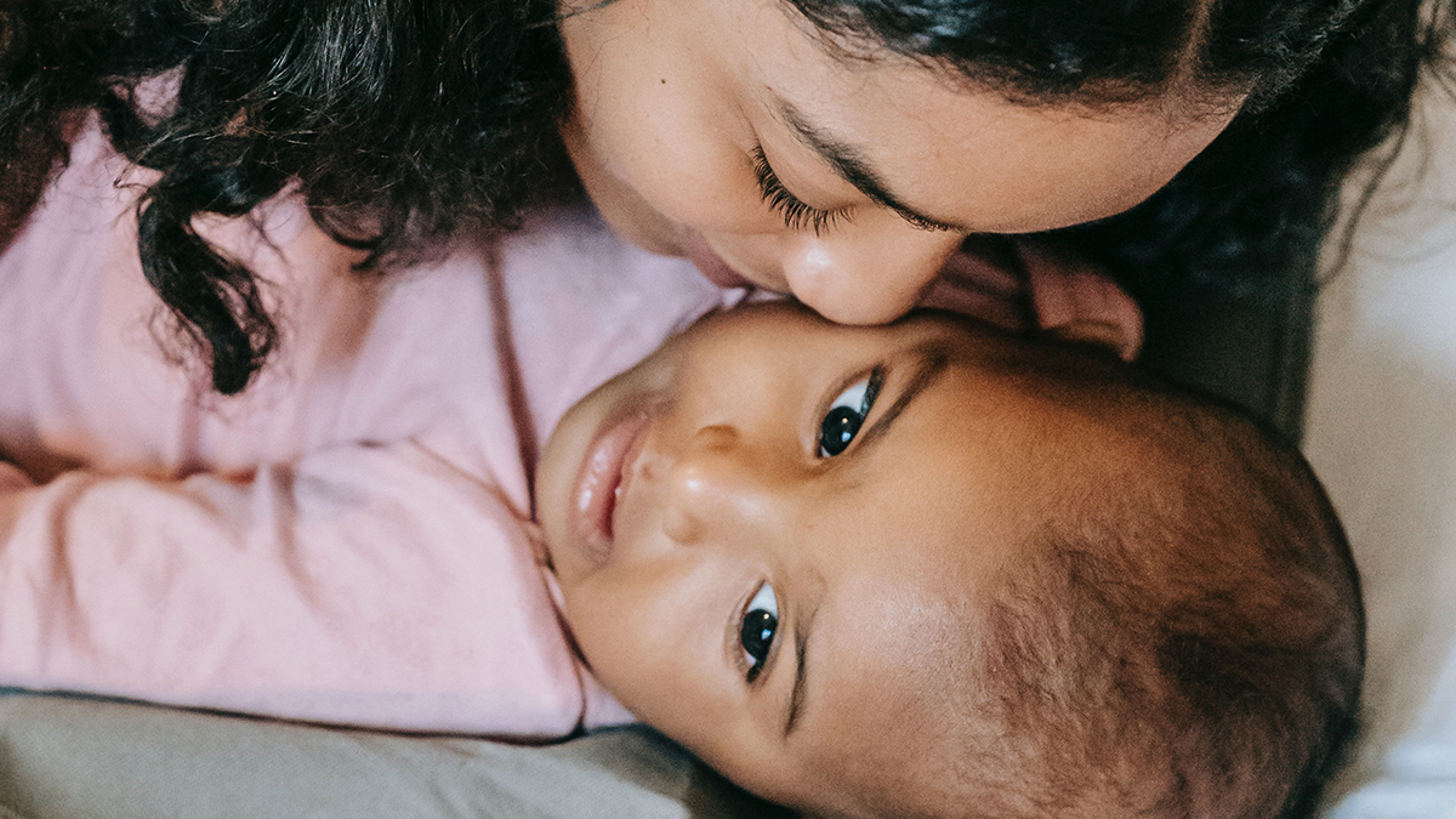Why ‘Mommy Brain’ Is Another Reason to Celebrate Moms
Being a mother alters your behavior and thought processes for the rest of your life.
Apr 09, 2022
Until recently, Max Cutler never played songs to her belly. Now that she’s six months pregnant, she does so every night because she wants her son to sleep peacefully along with her. She is constantly aware that everything she does now, she’s doing for two. “I get really excited every time he moves, and I’m feeling him all day, so I’m taking better care of myself than ever because I’m supporting another life. I eat better meals, I make it to my medical appointments, and if I get upset, I immediately try to stop being upset because I think about how it would affect the baby.”
This is why mothers deserve to be celebrated every day with gifts, respect, and fanfare: from the moment they begin carrying a child, they are changed utterly, from whatever they were to life-giver and caregiver. There is no greater undertaking and no more intimate and lasting union between two people. Not surprisingly, as part of its grand plan, nature transforms mothers’ bodies, emotions, and neural circuitry to make them successful moms.
They need all the help they can get because motherhood is a monumental transition – “awesome in the truest sense of the word,” says Columbia University medical psychologist Catherine Monk. “It usually comes with a lot of anticipation, but we have to acknowledge other feelings as well.” There’s going to be a loss of some personal freedoms and a new weight of responsibility. “Our brain changes with all the big changes in our lives, and this is one of the biggest.”
The bond begins
The connections between mother and child and the development of the maternal brain begin almost immediately in pregnancy. In 2017, Elseline Hoekzema, a neuroscientist at Leiden University in the Netherlands, and colleagues published a study in Nature Neuroscience showing that pregnancy triggered massive biological adaptations in mothers, leading to significant changes in their brain structure. Most notably, pregnant mothers experienced reductions in the gray matter in various regions of the brain. While these reductions may sound scary, they appeared to be an adaptive process that removes distractions, allowing the mother to focus better on her baby.
“We found that these changes most strongly affect social brain regions, and they predict measures of mother-infant bonding,” Elseline says. “We hypothesize that these relate to changes in a mother’s social cognition or empathy.”
Others have extended these finds. Neuroscientist Jodi Pawluski at the University of Rennes in France has found that pregnancy through the postpartum period right after birth is a time of unparalleled “plasticity” in the brain. That's when all sorts of neural connections are being made and modified, connections that mainly enhance parenting. She likes to think of this as a “fine-tuning” of the brain to make it more efficient for what it needs to do, which is to learn maternal behavior and interact with the offspring. “Nature wants babies to survive, so we’re making fewer neurons and synapses where we don’t need them and more where we do.”
The scent of love

Another major way nature alters mothers’ brains is by essentially making babies addictive. Ever smell a baby’s head? There’s no more euphoric aroma. There’s a reason for that: Nature wants mothers completely hooked on their babies, so that the travails and exhaustion of giving birth and caring for children will feel well worth it. And smell isn’t the only sense involved. From the moment a baby is born, moms are constituted to want to touch, kiss, and hold their offspring and keep staring enraptured at her angelic face.
“It’s nature’s reward system,” says Jodi. “With birth, different areas of our brain work together to regulate maternal behavior, producing a surge of dopamine and other chemicals like serotonin, norepinephrine, and prolactin that interact.” Those hormones give us reward and pleasure, producing ecstatic feelings that motivate us to go through all this for our babies and help us cope with the stress. At the same time, the chemical oxytocin surges to promote bonding. “You’re meant to see your baby as the cutest ever, even if other people think it looks like an alien,” Jodi says.
The benefits of mommy brain
The seismic shifting of mental resources is a phenomenon we somewhat disparagingly call “mommy brain.” It refers to the memory loss new mothers may experience in everyday activities (forgetting that eggs are boiling so long that they explode, putting the car keys in the refrigerator) because they are so thoroughly fixated on their babies.
“The research shows minor deficits in working memory and verbal memory, and it can be cumbersome and interfering, but it’s nothing that would make you incapable of functioning,” says Jodi. She believes that mommy brain partly results from sheer exhaustion and mental overload, but it’s also part of nature’s pruning of the brain that enables mothers to focus more fully on their babies.

Jodi remembers her own mommy brain experience shortly after giving birth. “I’d been doing research in this field for some time, so I was aware this could happen, but I was walking along this beautiful stretch of river with my husband, talking about something or other, and suddenly I couldn’t find the word for what I wanted to say. This was just the first of many times that it happened, but oh my gosh, the word was totally gone. I couldn’t finish my sentence. I kept noticing verbal deficits like this. And now I’m seven years postpartum, and I still lose or mix up words from time to time.”
While this phenomenon unsettled her the first time, she came to understand where it comes from. “New mothers have to remember 100,000 things. If you give anyone a million tasks to do, and they’re sleep-deprived, and they have a child that’s unpredictably crying, it’s not realistic to remember everything on the list.” And based on the research, she adds, the information vital for the baby stays in their brains.
Jodi cites Katherine Allison’s book The Mommy Brain: How Motherhood Makes Us Smarter. “I like her ideas,” she says. “We should stop focusing on these tiny little memory lapses and come to appreciate how much we have to keep in our heads as moms.” As just one example, she points to the improved visual memory that mothers have, especially memory for faces. “You need to remember that face to protect your child because it may or may not be dangerous,” she says. This is just one of many protective alert systems bolstered by changes to the maternal brain.
Hooked for life

If you’re a new mom and start longing for the days when you could focus just on the fun you were going to have that night, forget it. Most of these changes in your psychology and brain, caused both by nature and by your relationship with your child, are relatively permanent, as is the life you’re now responsible for, and your vision will remain resolutely focused on the urgencies of today and just as powerfully on the prospects of the future. Max says that while she still worries about little everyday things, she’s more focused than ever on the important things to come. “We talk about having a house, and I’m thinking about schools and playgrounds,” she says. “I think about the money we’ll need, where we’ll move, the life we want to have. My sister-in-law just had a baby, and I think about how they’re going to be cousins, and how nice it will be for them growing up together.”
Rest assured, the bonds between you and your child aren’t likely to evaporate. “Humans have one of the longest periods in the animal world when our young remain dependent on us, so these are intense, intense bonds, some of the deepest we ever have, says Catherine. “As children get older, there is necessarily some independence and separation, so the bond takes different forms at different times. But typically, it really just keeps deepening throughout our lives.”








